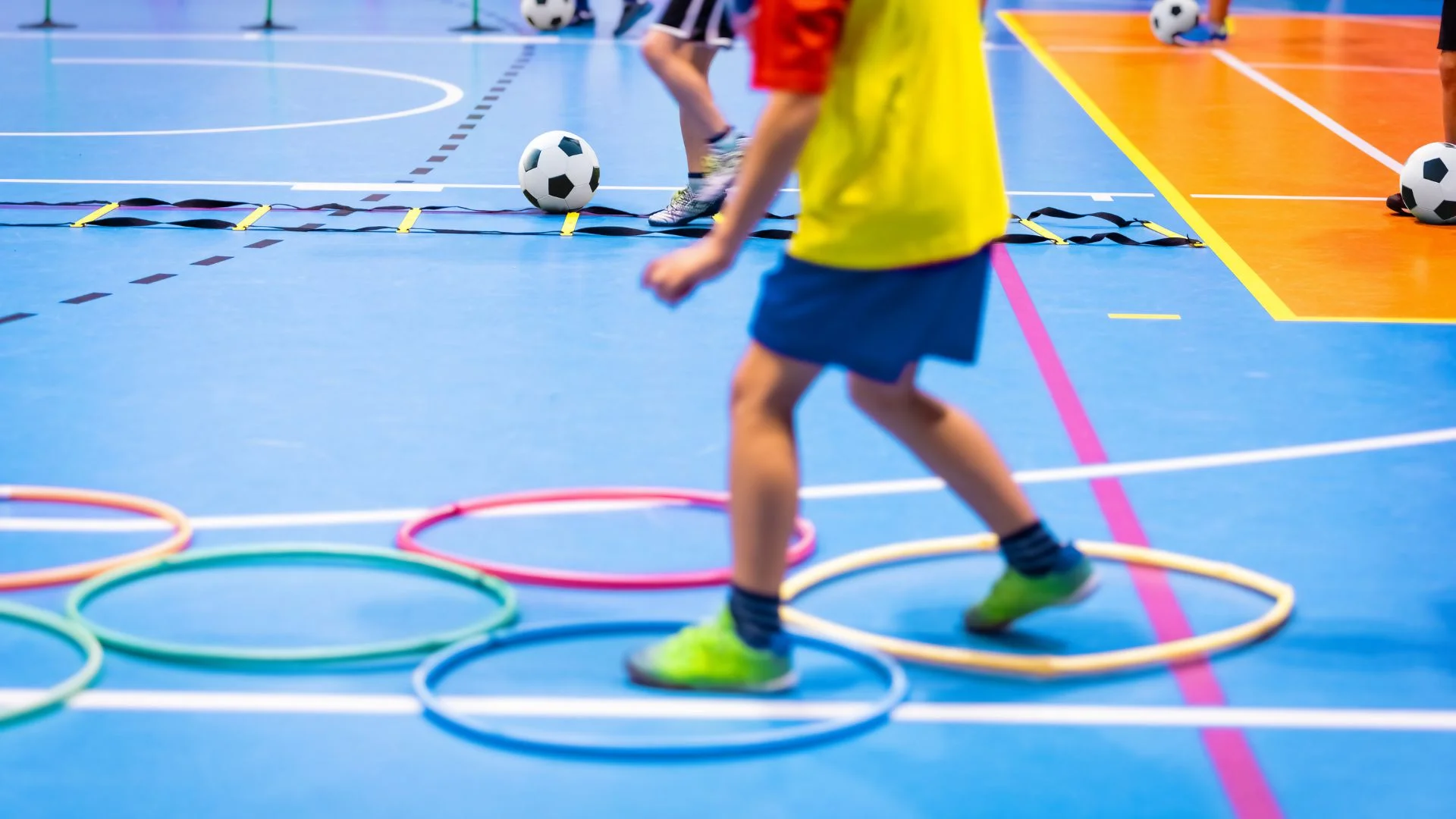How To Make Christmas More Inclusive for SEND Students
02 Sept, 20251-2 minutes
In this blog, you will learn:
- Why Christmas can be overwhelming for SEND students.
- How to make Christmas more inclusive for SEND students.
- Where the latest SEND Teacher jobs are and how to apply for them.
The Christmas period in schools is full of excitement. It brings bright decorations, special events, festive music and a sense of celebration to the classroom. However, for some students with Special Educational Needs and Disabilities (SEND), these changes can be overwhelming.
For SEND Teachers and SEND Teaching Assistants, the goal is to foster an environment where every student can celebrate the festive season without feeling excluded, anxious, or overwhelmed.
To create a more inclusive and accessible Christmas experience, we’re sharing practical tips to help all students in your care enjoy a positive and festive season.
Why can Christmas be overwhelming for SEND students?
Although Christmas is often called the most wonderful time of the year, it can be overwhelming for many SEND students, especially those with autism, sensory processing issues, ADHD, or anxiety. Flashing lights, busy decorations, strong smells, and changes to routine can quickly create sensory overload. According to Autistica, approximately 90% of autistic individuals face sensory processing differences, meaning the festive season can present a real challenge.
The run up to Christmas can also mean big changes to the school day. Special assemblies, Christmas plays, noisy parties, and visitors, which, while exciting, can be unsettling. According to Action for Children, festive occasions can introduce ‘crowds, noises, and changes in routine,’ which may be challenging for some children. Without the right preparation and support, this can lead to anxiety or withdrawal.
Making Christmas inclusive doesn’t mean taking away the joy, it’s about finding the right balance. With some thoughtful planning and sensory-friendly adjustments, you can ensure that every student feels comfortable and can fully enjoy the magic of the season.
How can schools make Christmas more inclusive for SEND students?
8 ways to make Christmas more inclusive for SEND students, include:
- Create a visual schedule for festive events.
- Offer sensory friendly decorations.
- Set up a Christmas calm space.
- Plan alternative activities.
- Be mindful with Christmas music.
- Prepare students for changes in routine.
- Offer choice in festive food.
- Introduce sensory friendly festive crafts.
Create a visual schedule for festive events
To enhance inclusivity at Christmas time, we advise keeping students informed about upcoming activities. To do so, you may wish to create a visual timetable showing each festive event.
Routine changes can be unsettling for children with SEND, so a visual schedule is a great way to prepare them for what’s coming. Why not use symbols, pictures or photos to represent activities such as Christmas lunch or a school nativity?
A clear schedule can reduce anxiety in SEND students by letting them know what and when to expect festive changes.
Offer sensory friendly decorations
While a fully decorated classroom can be exciting, it can also be overwhelming for SEND students. We suggest choosing soft, calming lights, simple colour schemes, and avoiding flashing or noisy decorations.
You could even involve students in creating their own decorations so they feel part of the process. By giving them ownership over the classroom environment, you are able to reduce the sense of unpredictability. This way, students can still enjoy the festive look without feeling overwhelmed by too much sensory input.
Set up a Christmas calm space
A Christmas calm space offers SEND students a chance to escape the noise and chaos, allowing them to relax and regulate in a safe, supportive environment. This could be a cosy corner of the classroom, a quiet library space or even a tent with soft furnishings. Why not fill the space with calming resources such as noise cancelling headphones, sensory toys and soft lighting?
Creating a calm Christmas space in the classroom provides students with a reassuring refuge when the holiday excitement becomes overwhelming.
Plan alternative activities
Not every student will feel comfortable taking part in large group events such as carol singing or Christmas parties. For SEND children, the noise, crowds, or unpredictability can be overstimulating.
To make Christmas inclusive for everyone, why not offer smaller and quieter alternatives which students can choose instead? We suggest creating a cosy Christmas story corner with fairy lights and festive picture books, or running one-to-one craft activities where pupils can work at their own pace without pressure.
This flexibility helps students feel included, lowers anxiety, and ensures that Christmas is a positive and enjoyable experience for everyone.
Be mindful with Christmas music
Festive music can be joyful, but it can also become too much for SEND students. If you are playing Christmas music, consider keeping the volume low or choosing calmer tracks. You could even let pupils pick songs they enjoy so they feel more in control of the sensory environment.
By carefully considering your approach, Christmas music can continue to be a joyful aspect of the season while ensuring it feels safe and manageable for all students.
Prepare students for changes in routine
In the lead-up to Christmas, school routines often shift dramatically with assemblies, special lunches, performances and visitors. For SEND students, these changes can sometimes feel confusing or unsettling.
To ease anxiety, prepare students ahead of time by discussing upcoming events, using social stories, or sharing photos of the new environments they will encounter. Some students may benefit from a rehearsal before the event, allowing them to gradually adjust to the changes.
Offer choice in festive food
Christmas lunches and parties often feature new foods, which can be difficult for students with sensory sensitivities or restricted diets. To make meals more inclusive, you could offer familiar food alongside festive treats and let pupils decide what they want to eat. Some schools hold taste tests, allowing students to sample small portions of new foods before deciding whether to try them fully.
Empowering students to make their own choices reduces anxiety and fosters a sense of inclusion during the celebration, even if they choose to enjoy their favorite sandwich.
Introduce sensory friendly festive crafts
Christmas crafts can spread festive cheer, but not every student enjoys using glitter, glue, or noisy materials. Why not offer a range of craft options so students can choose what feels comfortable for them? Some may prefer colouring festive templates, while others may enjoy working with textured paper or clay.
We suggest breaking tasks into smaller, structured steps to help students feel less overwhelmed. By offering variety, everyone can feel included in the festive activities and take part in their own way.
SCG School Insights Report 2025
As specialists in education and SEND recruitment, we work closely with primary, secondary, and SEND schools throughout the UK and are mindful of the challenges that schools and teaching staff are currently facing.
In the School Insights Report 2025, we explore pupil experience and outcomes, key developments impacting the education sector, staffing and workforce trends, and the state of funding and resources in education. Read the SCG School Insights Report 2025 here.
Teaching jobs
If you’re searching for your next teaching job, why not take a look at the latest teaching vacancies, or simply upload your CV to be notified when a relevant position becomes available.
Recruit teaching staff
As a specialist education recruitment agency, we support mainstream and SEND schools with their temporary, permanent and temp-perm staffing needs.
We currently work with hundreds of schools and have exclusive access to some of the best Teachers and Teaching Assistants in the North West.
If you’re struggling to fill a teaching vacancy, why not get in touch with one of our team to see how we can help?
Primary schools - Jimmy Callagher
Secondary schools - Liam Jones
SEND schools - Jamie Heath
Meet Jamie Heath
Who is Spencer Clarke Group?
Established in 2017, we’re an award winning and progressive recruitment agency based in the heart of the North West. Our reputation is built on trust, expertise and an unwavering commitment to exceed expectations.
In 2024, we were named Recruitment Agency of the Year at the prestigious Recruiter Awards, an accolade we are extremely proud of.




